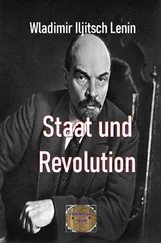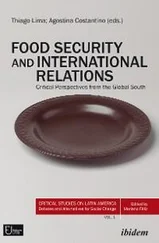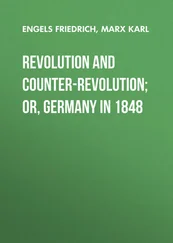Leon Trotsky - Our Revolution - Essays on Working-Class and International Revolution, 1904-1917
Здесь есть возможность читать онлайн «Leon Trotsky - Our Revolution - Essays on Working-Class and International Revolution, 1904-1917» — ознакомительный отрывок электронной книги совершенно бесплатно, а после прочтения отрывка купить полную версию. В некоторых случаях можно слушать аудио, скачать через торрент в формате fb2 и присутствует краткое содержание. Жанр: Русская классическая проза, foreign_language, на английском языке. Описание произведения, (предисловие) а так же отзывы посетителей доступны на портале библиотеки ЛибКат.
- Название:Our Revolution: Essays on Working-Class and International Revolution, 1904-1917
- Автор:
- Жанр:
- Год:неизвестен
- ISBN:нет данных
- Рейтинг книги:4 / 5. Голосов: 1
-
Избранное:Добавить в избранное
- Отзывы:
-
Ваша оценка:
- 80
- 1
- 2
- 3
- 4
- 5
Our Revolution: Essays on Working-Class and International Revolution, 1904-1917: краткое содержание, описание и аннотация
Предлагаем к чтению аннотацию, описание, краткое содержание или предисловие (зависит от того, что написал сам автор книги «Our Revolution: Essays on Working-Class and International Revolution, 1904-1917»). Если вы не нашли необходимую информацию о книге — напишите в комментариях, мы постараемся отыскать её.
Our Revolution: Essays on Working-Class and International Revolution, 1904-1917 — читать онлайн ознакомительный отрывок
Ниже представлен текст книги, разбитый по страницам. Система сохранения места последней прочитанной страницы, позволяет с удобством читать онлайн бесплатно книгу «Our Revolution: Essays on Working-Class and International Revolution, 1904-1917», без необходимости каждый раз заново искать на чём Вы остановились. Поставьте закладку, и сможете в любой момент перейти на страницу, на которой закончили чтение.
Интервал:
Закладка:
The year of war, however, passed not without results. Masses, yesterday primitive, to-day are confronted with the most tremendous events. They must seek to understand them. The very duration of the war has produced a desire for reasoning, for questioning as to the meaning of it all. Thus the war, while hampering for a period of time the revolutionary initiative of thousands, has awakened to life the political thought of millions.
The year of war passed not without results, not a single day passed without results. In the lower strata of the people, in the very depths of the masses, a work was going on, a movement of molecules, imperceptible, yet irresistible, incessant, a work of accumulating indignation, bitterness, revolutionary energy. The atmosphere our streets are breathing now is no longer an atmosphere of blank despair, it is an atmosphere of concentrated indignation which seeks for means and ways for revolutionary action. Each expedient action of the vanguard of our working masses would now carry away with it not only all our revolutionary reserves, but also thousands and hundreds of thousands of revolutionary recruits. This mobilization, unlike the mobilization of the government, would be carried out in the presence of general sympathy and active assistance of an overwhelming majority of the population.
In the presence of strong sympathies of the masses, in the presence of active assistance on the part of the democratic elements of the people; facing a government commonly hated, unsuccessful both in big and in small undertakings, a government defeated on the seas, defeated in the fields of battle, despised, discouraged, with no faith in the coming day, a government vainly struggling, currying favor, provoking and retreating, lying and suffering exposure, insolent and frightened; facing an army whose morale has been shattered by the entire course of the war, whose valor, energy, enthusiasm and heroism have met an insurmountable wall in the form of administrative anarchy, an army which has lost faith in the unshakable security of a régime it is called to serve, a dissatisfied, grumbling army which more than once has torn itself free from the clutches of discipline during the last year and which is eagerly listening to the roar of revolutionary voices, – such will be the conditions under which the revolutionary proletariat will walk out into the streets. It seems to us that no better conditions could have been created by history for a final attack. History has done everything it was allowed by elemental wisdom. The thinking revolutionary forces of the country have to do the rest.
A tremendous amount of revolutionary energy has been accumulated. It should not vanish with no avail, it should not be dissipated in scattered engagements and clashes, with no coherence and no definite plan. All efforts ought to be made to concentrate the bitterness, the anger, the protest, the rage, the hatred of the masses, to give those emotions a common language, a common goal, to unite, to solidify all the particles of the masses, to make them feel and understand that they are not isolated, that simultaneously, with the same slogan on the banner, with the same goal in mind, innumerable particles are rising everywhere. If this understanding is achieved, half of the revolution is done.
We have got to summon all revolutionary forces to simultaneous action. How can we do it?
First of all we ought to remember that the main scene of revolutionary events is bound to be the city. Nobody is likely to deny this. It is evident, further, that street demonstrations can turn into a popular revolution only when they are a manifestation of masses , i.e., when they embrace, in the first place, the workers of factories and plants. To make the workers quit their machines and stands; to make them walk out of the factory premises into the street; to lead them to the neighboring plant; to proclaim there a cessation of work; to make new masses walk out into the street; to go thus from factory to factory, from plant to plant, incessantly growing in numbers, sweeping police barriers, absorbing new masses that happened to come across, crowding the streets, taking possession of buildings suitable for popular meetings, fortifying those buildings, holding continuous revolutionary meetings with audiences coming and going, bringing order into the movements of the masses, arousing their spirit, explaining to them the aim and the meaning of what is going on; to turn, finally, the entire city into one revolutionary camp, this is, broadly speaking, the plan of action.
The starting point ought to be the factories and plants. That means that street manifestations of a serious character, fraught with decisive events, ought to begin with political strikes of the masses .
It is easier to fix a date for a strike, than for a demonstration of the people, just as it is easier to move masses ready for action than to organize new masses.
A political strike, however, not a local, but a general political strike all over Russia , – ought to have a general political slogan. This slogan is: to stop the war and to call a National Constituent Assembly .
This demand ought to become nation-wide, and herein lies the task for our propaganda preceding the all-Russian general strike. We ought to use all possible occasions to make the idea of a National Constituent Assembly popular among the people. Without losing one moment, we ought to put into operation all the technical means and all the powers of propaganda at our disposal. Proclamations and speeches, educational circles and mass-meetings ought to carry broadcast, to propound and to explain the demand of a Constituent Assembly. There ought to be not one man in a city who should not know that his demand is: a National Constituent Assembly.
The peasants ought to be called to assemble on the day of the political strike and to pass resolutions demanding the calling of a Constituent Assembly. The suburban peasants ought to be called into the cities to participate in the street movements of the masses gathered under the banner of a Constituent Assembly. All societies and organizations, professional and learned bodies, organs of self-government and organs of the opposition press ought to be notified in advance by the workingmen that they are preparing for an all-Russian political strike, fixed for a certain date, to bring about the calling of a Constituent Assembly. The workingmen ought to demand from all societies and corporations that, on the day appointed for the mass-manifestation, they should join in the demand of a National Constituent Assembly. The workingmen ought to demand from the opposition press that it should popularize their slogan and that on the eve of the demonstration it should print an appeal to the population to join the proletarian manifestation under the banner of a National Constituent Assembly.
We ought to carry on the most intensive propaganda in the army in order that on the day of the strike each soldier, sent to curb the "rebels," should know that he is facing the people who are demanding a National Constituent Assembly.
" The hiss of the knout " which ended the era of "cordial relations" was a statement issued by the government on December 12, 1904, declaring that "all disturbances of peace and order and all gatherings of an anti-governmental character must and will be stopped by all legal means in command of the authorities." The Zemstvo and municipal bodies were advised to keep from political utterings. As to the Socialist parties, and to labor movement in general, they were prosecuted under Svyatopolk-Mirski as severely as under Von Plehve.
" The vast apparatus of the liberal press " was the only way to reach millions. The revolutionary "underground" press, which assumed towards 1905 unusual proportions, could, after all, reach only a limited number of readers. In times of political unrest, the public became used to read between the lines of the legal press all it needed to feed its hatred of oppression.
Читать дальшеИнтервал:
Закладка:
Похожие книги на «Our Revolution: Essays on Working-Class and International Revolution, 1904-1917»
Представляем Вашему вниманию похожие книги на «Our Revolution: Essays on Working-Class and International Revolution, 1904-1917» списком для выбора. Мы отобрали схожую по названию и смыслу литературу в надежде предоставить читателям больше вариантов отыскать новые, интересные, ещё непрочитанные произведения.
Обсуждение, отзывы о книге «Our Revolution: Essays on Working-Class and International Revolution, 1904-1917» и просто собственные мнения читателей. Оставьте ваши комментарии, напишите, что Вы думаете о произведении, его смысле или главных героях. Укажите что конкретно понравилось, а что нет, и почему Вы так считаете.












